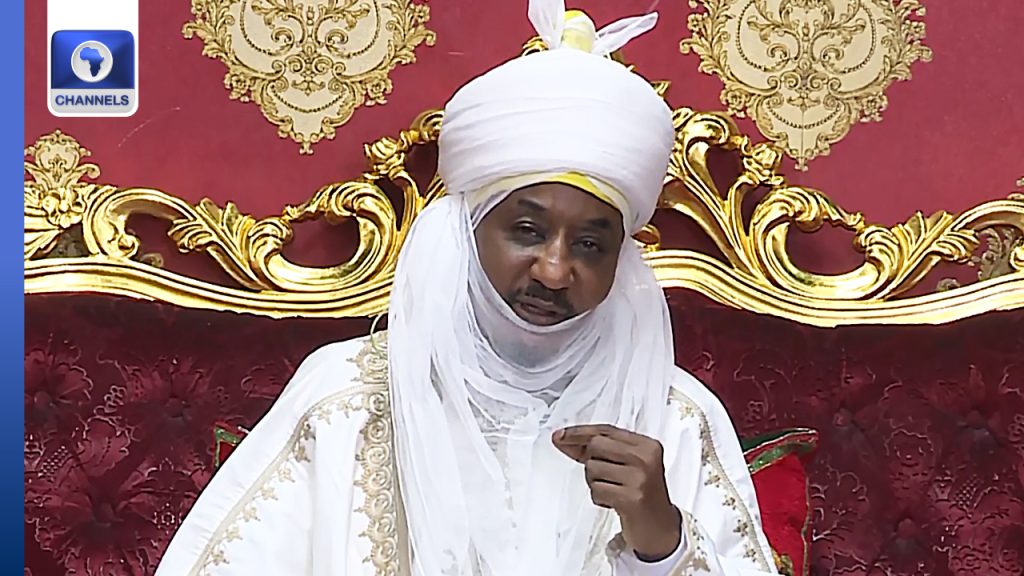Muhammadu Sanusi II, the Emir of Kano and former Central Bank of Nigeria (CBN) governor, has sharply criticized Nigeria’s economic trajectory, asserting that decades of flawed policies have pushed the country toward financial instability. Speaking during an interview on Channels Television’s Politics Today on Wednesday, Sanusi—a prominent economist and royal figure—argued that Nigeria’s current economic struggles were predictable, as leaders repeatedly ignored warnings about unsustainable fiscal practices.
“I warned over a decade ago that this is where we’re headed,” he said, emphasizing that experts familiar with Nigeria’s economy are unsurprised by its challenges. “We spent decades pursuing policies destined to bankrupt the economy.” Sanusi, who served as CBN governor from 2009 to 2014, linked these issues to systemic resistance against reform. He claimed dissenters who challenged policies enabling cronyism and elite profit-seeking were sidelined or persecuted. “Those who controlled the narrative were beneficiaries of rent-seeking systems,” he said. “Anyone seen as a threat became a target.”
Sanusi’s remarks came during a broader reflection on the legacy of Nigeria’s late military leader, General Murtala Muhammed, who governed briefly from 1975 until his assassination in 1976. Describing Muhammed as a mentor and guardian, Sanusi praised his efforts to recalibrate Nigeria’s post-colonial economy. He characterized Muhammed as a “bourgeois nationalist” who sought to transfer economic power from foreign interests to Nigerian capitalists without dismantling market structures. “His policies aimed to create a domestic capitalist class to replace imperialist control,” Sanusi explained, citing initiatives like the Indigenous Decrees, which prioritized local ownership in sectors previously dominated by foreign entities.
While acknowledging Muhammed’s patriotism, Sanusi clarified that the former leader did not oppose capitalism itself but instead focused on ensuring Nigerians benefited from economic activities. “This was an ideological shift from neo-colonialism to nationalist capitalism,” he said. However, Sanusi contrasted Muhammed’s era with modern governance, suggesting current leaders lack similar clarity of purpose. He reiterated that Nigeria’s persistent economic woes—including inflation, debt, and currency instability—stem from entrenched systemic issues and a failure to heed expert counsel.
The emir’s critique adds to ongoing debates about Nigeria’s economic future, particularly under President Bola Tinubu’s reforms, which include subsidy removals and efforts to attract foreign investment. Sanusi’s outspokenness has previously drawn political backlash, including his 2020 dethronement as Emir of Kano, widely viewed as retaliation for criticizing government policies. His latest comments underscore tensions between reform advocates and established power structures in Africa’s most populous nation—a dynamic that continues to shape its struggle for equitable growth.
Murtala Muhammed’s seven-month tenure remains a symbol of assertive nationalism for many Nigerians, though his legacy is debated. Sanusi’s analysis frames the late leader’s strategies as a missed blueprint for balancing economic sovereignty with global engagement—a lesson he implies remains urgent today.
